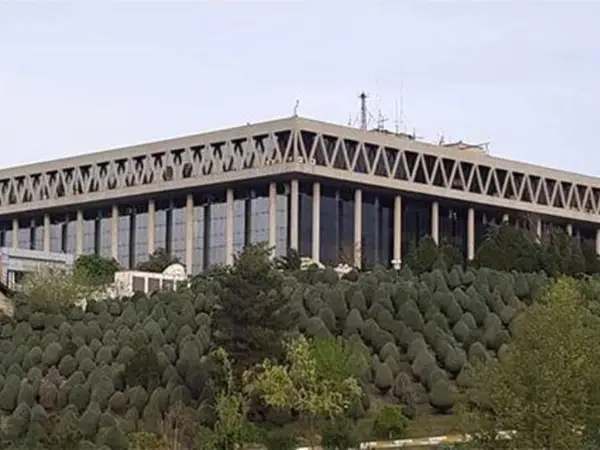Washington says it has renewed a waiver of sanctions against Iran’s state radio and television establishment, the IRIB, on the basis of US national interests.
State Department spokesperson Ned Price said during his press briefing on Thursday that the US periodically reviews this waiver to allow the provision of satellite broadcast service to the IRIB under the auspices of the International Telecommunications Satellite Organization, or ITSO.
Trying to justify the decision by the administration, he said that "this waiver has been renewed by successive American administrations without any interruption since 2014. The waiver has been issued close to 20 times – some 18 or so times – in recent years.”
Despite Price’s claim that Washington uses every single available tool to hold Iranian authorities accountable for their human rights abuses and for their censorship, the waiver seems to contradict repeated pledges to support the Iranians who for over five months have been protesting against the regime and its leaders.
The sanctions waiver raises more questions as Price said, “We are and remain seriously concerned by the IRIB’s role in censoring the Iranian people’s access to information and its involvement in human rights abuses.”
With a wording meant to minimize the effects of the waiver, Price said that “While this narrow waiver allows for the provision of satellite broadcast services to IRIB, IRIB and its senior leadership remain subject to US sanctions under various authorities, including for their involvement in censorship and human rights abuses.” He was referring to a series of recent sanctions on IRIB officials, including its president Peyman Jebelli and the chief of the world service Ahmad Norouzi. Two brothers of Jebelli, close to Ali Khamenei's son Mojtaba, have recently defected and sought asylum in the US.
While the sanctions on leaders are important, the waiver for IRIB allows it to continue to broadcast regime propaganda and forced confessions of prisoners on international satellites.
Price dodged a direct answer about the reason behind the waiver, saying, “These are underlying conditions that we look at every time this waiver comes up for renewal. We ultimately are going to do what is in our interest but ultimately what we deem to be most effective to promote the aspirations of the Iranian people.”
Questioned to elaborate on these “national interests,” he only said that “these are complex issues involving our membership in the ITSO, involving a number of factors, but we look at this very carefully through every single lens.”
Defending the decision, he said, “we have made the judgment call, as have previous administrations multiple times over every 180 days, that waiving these sanctions are in our interest.” He continued, however, “We also believe it’s in the interest of our ability to protect, to promote the aspirations of the Iranian people.”
Amid measures targeting the Islamic Republic’s financial and energy sectors, under Executive Order 13846, by then President Donald Trump in 2018 after he withdrew the US from the 2015 Iran nuclear agreement – US government departments are empowered to sanction entities implicated in “censorship or other activities with respect to Iran on or after June 12, 2009, that prohibit, limit, or penalize the exercise of freedom of expression…or that limit access to print or broadcast media.”
The US first designated IRIB (Islamic Republic of Iran Broadcasting) in 2013, and in 2018 reimposed the move in what then Treasury Secretary Steven Mnuchin said was a part of “the maximum pressure exerted by the United States” after withdrawal from the 2015 nuclear agreement.
